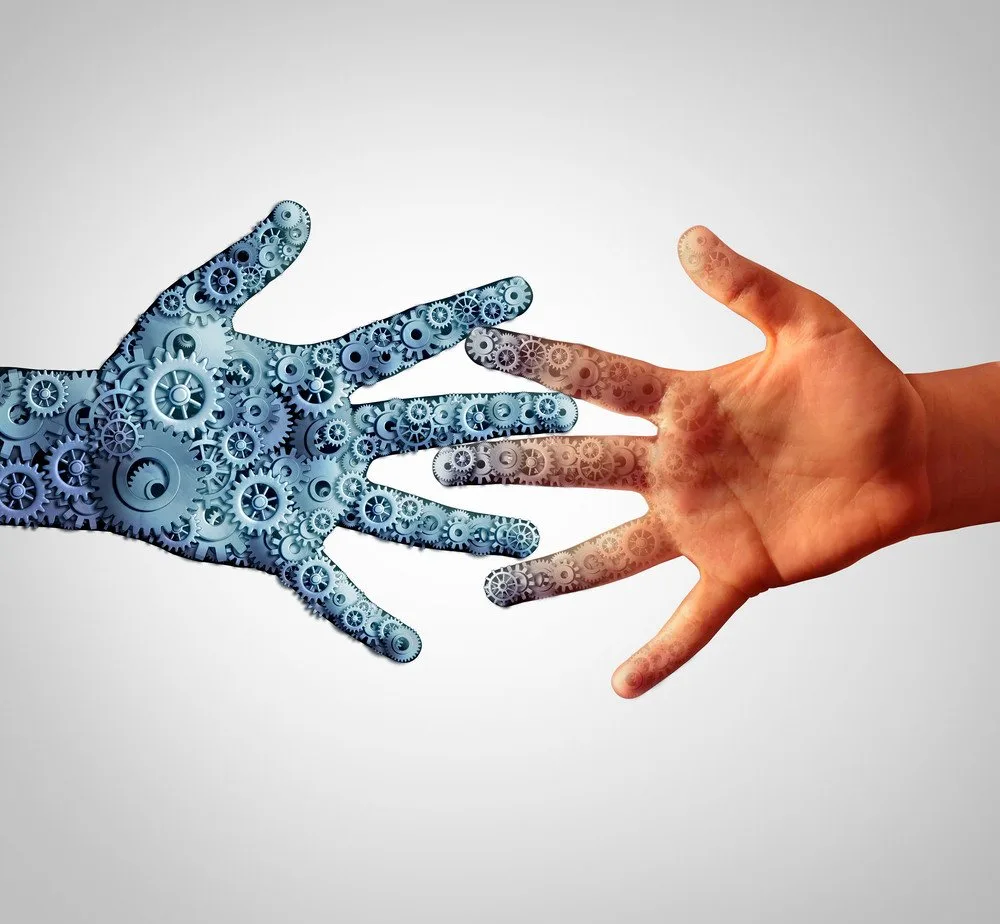In the dynamic landscape of healthcare, the convergence of innovation and technology has redefined the paradigms of care delivery. The evolution of healthcare stands as a testament to the transformative power of innovation, fundamentally reshaping the way healthcare is accessed, delivered, and personalized for diverse populations. Longevity Live Paid Content.
Technological Advancements in Healthcare
The fusion of healthcare and technology has led to monumental advancements, revolutionizing patient care across the spectrum. From the emergence of telemedicine as a cornerstone in remote consultations to the integration of artificial intelligence (AI) and machine learning algorithms in diagnostics and treatment strategies, technology has become the driving force behind precision medicine. Real-time health monitoring through wearable devices, coupled with big data analytics, empowers individuals to actively engage in their health management actively, fostering a proactive approach to wellness. These technological marvels not only enhance accessibility but also pave the way for personalized healthcare interventions tailored to individual patients’ unique biological makeups and medical histories.
The convergence of healthcare and technology has sparked monumental advancements, reshaping patient care. Telemedicine stands as a pillar for remote consultations, while AI and machine learning revolutionize diagnostics and treatment strategies. Moreover, real-time health monitoring via wearables, paired with big data analytics, empowers proactive health management. This tech-driven landscape ensures not just accessibility but also personalized interventions. In fields like oncology, specialized oncology EMR systems play a pivotal role, refining precision in care and documentation, contributing to tailored approaches based on patients’ unique biological profiles and medical histories.
Impact on Healthcare Accessibility and Personalization
This intersection of healthcare and innovation holds the promise of democratizing healthcare access, transcending geographical barriers, and ensuring inclusivity for all. Telemedicine platforms facilitate remote consultations, offering individuals unprecedented access to medical expertise irrespective of their physical location. The integration of data-driven solutions and wearable technology fosters a deeper understanding of health metrics, empowering patients to make informed decisions and enabling healthcare providers to craft highly personalized care plans. Moreover, the advent of AI-driven diagnostics enhances precision in disease detection and treatment, propelling healthcare toward a future where early interventions and targeted therapies become the norm, significantly impacting patient outcomes.
Future Prospects and Challenges
As innovation continues to reshape healthcare, the industry faces the challenge of balancing technological advancements with ethical considerations and ensuring equitable access to these innovations. Cybersecurity becomes increasingly pivotal in safeguarding sensitive patient data, fostering trust, and maintaining the integrity of healthcare systems. Moreover, addressing disparities in access to technology and healthcare services remains a critical hurdle in achieving comprehensive inclusivity.
Telemedicine: Redefining Remote Healthcare
Telemedicine represents a transformative leap in healthcare, redefining the landscape of remote healthcare delivery. This innovative technology enables patients to access medical consultations and expertise regardless of their physical location. Through telemedicine platforms, individuals can engage in virtual consultations with healthcare professionals, fostering a seamless continuum of care that transcends geographical barriers. This evolution in healthcare delivery ensures that patients have unprecedented access to specialized consultations, routine check-ups, and even chronic disease management from the comfort of their homes. Beyond convenience, telemedicine nurtures a patient-centric approach, offering timely medical attention without the logistical hurdles of travel or long wait times, thus fostering an inclusive healthcare environment that prioritizes accessibility and continuity of care.
Moreover, telemedicine’s impact extends beyond immediate healthcare delivery, revolutionizing the way healthcare providers and patients interact. It encourages a proactive approach to health management by enabling continuous monitoring and follow-ups through digital platforms. This transformative shift not only ensures access to specialized care for individuals in remote or underserved areas but also empowers patients to actively engage in their health management. Telemedicine has emerged as a pivotal enabler in reshaping the patient-provider dynamic, forging stronger collaborative relationships and fostering a healthcare ecosystem that is not bound by geographical constraints.
Artificial Intelligence in Healthcare: Precision Diagnostics
Artificial Intelligence (AI) has emerged as a game-changer in healthcare, particularly in revolutionizing diagnostics and treatment strategies. Machine learning algorithms and AI-driven systems analyze vast amounts of medical data with unparalleled accuracy, enabling precise diagnostics and interventions. This analytical prowess not only expedites diagnostics but also facilitates highly personalized treatment plans tailored to individual patients’ unique health profiles. By diving into diverse datasets encompassing genetic markers, biomarkers, and historical records, AI unravels complex correlations, offering invaluable insights that guide precise therapeutic approaches.
The integration of AI in healthcare extends beyond diagnostics; it continuously refines treatment strategies based on real-time data insights. These dynamic systems adapt and evolve, ensuring treatments remain responsive to the changing health status and needs of individual patients. This responsive approach not only mitigates risks of adverse reactions but also optimizes therapeutic outcomes by aligning treatments with the specific requirements of each patient. AI’s amalgamation with healthcare delivery revolutionizes the landscape, ushering in an era where treatment protocols are not standardized but intricately tailored to meet the unique needs of patients, enhancing precision and efficacy in healthcare interventions.
Wearable Technology: Empowering Personal Health Management
Wearable technology stands as a beacon in transforming personal health management. It offers individuals an unprecedented level of access and control over their well-being. These devices, ranging from smartwatches to fitness trackers and health-monitoring sensors, have seamlessly integrated into daily routines, becoming indispensable tools in health awareness. By continuously tracking and analyzing real-time health metrics like heart rate variability, sleep patterns, and physical activity, wearables provide users with invaluable insights into their overall health status. This continuous stream of personalized health data fosters a heightened sense of self-awareness, empowering individuals to make informed decisions about their lifestyles and wellness choices.
Beyond data collection, wearable technology serves as a catalyst for proactive health management. These devices act as early warning systems. They alert users to deviations from normal health parameters, enabling timely interventions and potentially averting health complications. The accessibility of this real-time health information encourages a proactive approach to health, allowing users to adjust behaviors or seek medical advice promptly when needed. Wearable technology empowers individuals by placing health insights directly at their fingertips, fostering a more engaged and informed approach to personal well-being.
Data-Driven Healthcare Solutions: Personalized Interventions
Data-driven healthcare solutions have redefined the approach to personalized interventions, leveraging vast troves of patient information to revolutionize care delivery. These innovations harness the power of big data analytics and artificial intelligence to dissect and interpret complex datasets. It provides healthcare professionals with unprecedented insights into patient health. By amalgamating electronic health records, genetic profiles, and real-time monitoring data. These solutions craft tailored care plans that align precisely with each patient’s unique biological makeup and medical history. This personalized healthcare paradigm transcends the traditional one-size-fits-all approach, accounting for individual differences in biology, lifestyle, and health factors.
Moreover, data-driven solutions empower healthcare providers with predictive capabilities, enabling them to forecast potential health risks and complications. By analyzing patterns within extensive datasets. These systems can anticipate and preemptively identify health concerns, leading to timely interventions that can significantly impact patient outcomes. The integration of these solutions fosters a more proactive approach to healthcare. It enables early detection, proactive interventions, and, ultimately, better patient outcomes. As technology continues to evolve, data-driven healthcare solutions stand as a pivotal enabler in shaping the future. Precision, personalized interventions become the cornerstone of healthcare delivery.
Advancements in Healthcare Accessibility
Advancements in healthcare technology have spurred a profound transformation in healthcare accessibility. This is breaking down longstanding barriers and ushering in an era of enhanced inclusivity. Telemedicine, a flagship innovation, has revolutionized healthcare access by offering remote consultations and medical services, irrespective of geographical constraints. Through telemedicine platforms, individuals can connect with healthcare providers in real time. This can foster a continuum of care that transcends physical boundaries. This evolution ensures equitable access to specialized consultations, routine check-ups, and even chronic disease management. It empowers patients to receive timely medical attention without geographical limitations.
Additionally, wearable technology and digital health solutions have democratized healthcare access by providing individuals with tools for proactive health management. Wearable devices, ranging from fitness trackers to health monitoring sensors, offer real-time health data. Empowering individuals to monitor their health status continually. Remote monitoring solutions complement these efforts. It enables healthcare providers to assess and intervene based on real-time data remotely. It also reduces the need for frequent physical visits. These innovations in healthcare accessibility empower patients to actively engage in their health journeys actively. It also fosters a more inclusive healthcare landscape that prioritizes individualized care and proactive wellness management.
Ethical Considerations in Healthcare Innovation
As healthcare innovation continues to surge forward, ethical considerations stand as crucial pillars. They are important for guiding the development, implementation, and utilization of emerging technologies. Balancing the benefits of innovation with ethical responsibilities towards patient welfare, privacy, and equitable access remains paramount. One of the primary ethical considerations revolves around ensuring patient data privacy and confidentiality. This is especially important in an era where healthcare systems heavily rely on digital repositories. Safeguarding sensitive information from breaches and unauthorized access necessitates robust cybersecurity measures and stringent adherence to data protection regulations. Striking a delicate balance between leveraging patient data for advancements while upholding patient privacy rights is a moral imperative. It requires continual vigilance and ethical frameworks to guide these practices.
Equally important is the equitable distribution and accessibility of healthcare innovations across diverse demographics and socioeconomic strata. Addressing disparities in access to healthcare technology and services remains a critical ethical concern. Ensuring that advancements benefit all individuals, irrespective of their location, economic status, or technological literacy, requires proactive measures. Ethical healthcare innovation demands a focus on inclusivity. It advocates for equal access to emerging technologies to bridge existing gaps and promote fair and just healthcare delivery. Additionally, ethical considerations extend to the responsible implementation of AI and machine learning in healthcare. It ensures transparency, accountability, and mitigation of biases in algorithms to prevent discriminatory outcomes in patient care. Balancing technological progress with ethical considerations is essential. This helps to to nurture a healthcare landscape that prioritizes patient welfare, fairness, and equitable access.
Conclusion
The intersection of healthcare and innovation signifies an era where technology becomes an enabler, propelling healthcare towards a future characterized by personalized, accessible, and responsive care. As these advancements continue to evolve, the healthcare landscape adapts. This promises a transformative journey towards a more patient-centric, efficient, and inclusive healthcare ecosystem.
Who is the author?
Awais Awe is a prolific writer and a dedicated researcher specializing in the field of medical and health sciences. With a passion for disseminating knowledge and fostering a deeper understanding of healthcare topics, Awais has carved a niche for himself as a trusted authority in the realm of medical literature. His journey in the world of writing and research began with a fervent curiosity about the intricacies of the human body and the complexities of healthcare systems. Armed with a solid educational background in medicine and a keen analytical mind, Awais embarked on a quest to bridge the gap between scientific knowledge and the general public.

Awais Awe





![women [longevity live]](https://longevitylive.com/wp-content/uploads/2020/01/photo-of-women-walking-down-the-street-1116984-100x100.jpg)









